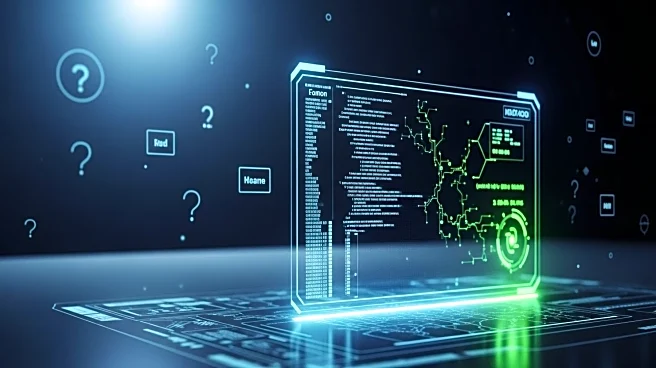What is the story about?
What's Happening?
Hackathons have become a significant platform for innovation, bringing together individuals from diverse backgrounds to solve problems under tight deadlines. These events, which often last 24 to 48 hours, are not just coding marathons but incubators of creativity and collaboration. Notable innovations such as Twitter and GroupMe originated from hackathon-style sessions. Within companies, internal hackathons have led to transformative ideas like Facebook's 'Like' button. Participants gain hands-on experience with new technologies and refine essential skills such as teamwork and communication. The rise of artificial intelligence is reshaping hackathons, allowing for faster prototyping and real-time solutions, though it also introduces challenges like data privacy concerns.
Why It's Important?
Hackathons are crucial for fostering innovation and providing practical learning experiences. They offer participants the opportunity to experiment with new technologies and develop solutions to real-world problems. These events also serve as a gateway to professional networks and career opportunities, with some participants securing job offers. Hackathons contribute to national and global impact, as seen in the Smart India Hackathon, where students tackle challenges from government and industry. The entrepreneurial mindset cultivated during hackathons is invaluable, as many successful startups trace their roots back to these events.
What's Next?
As hackathons continue to evolve, the integration of artificial intelligence will likely enhance their transformative potential. Participants will need to balance AI's capabilities with human creativity and responsibility. Companies and educational institutions may increasingly use hackathons to drive innovation and address societal challenges. The focus on collaboration and interdisciplinary teams will remain central, encouraging diverse skill sets to tackle complex problems effectively.
Beyond the Headlines
Hackathons are not only about technological innovation but also about cultivating an entrepreneurial spirit. They teach participants to brainstorm, prototype, and pitch ideas under pressure, mirroring the startup journey. The ethical implications of AI use in hackathons, such as data privacy and algorithmic bias, will require careful consideration. As these events grow in popularity, they may influence educational curricula, emphasizing practical, hands-on learning over traditional methods.

















